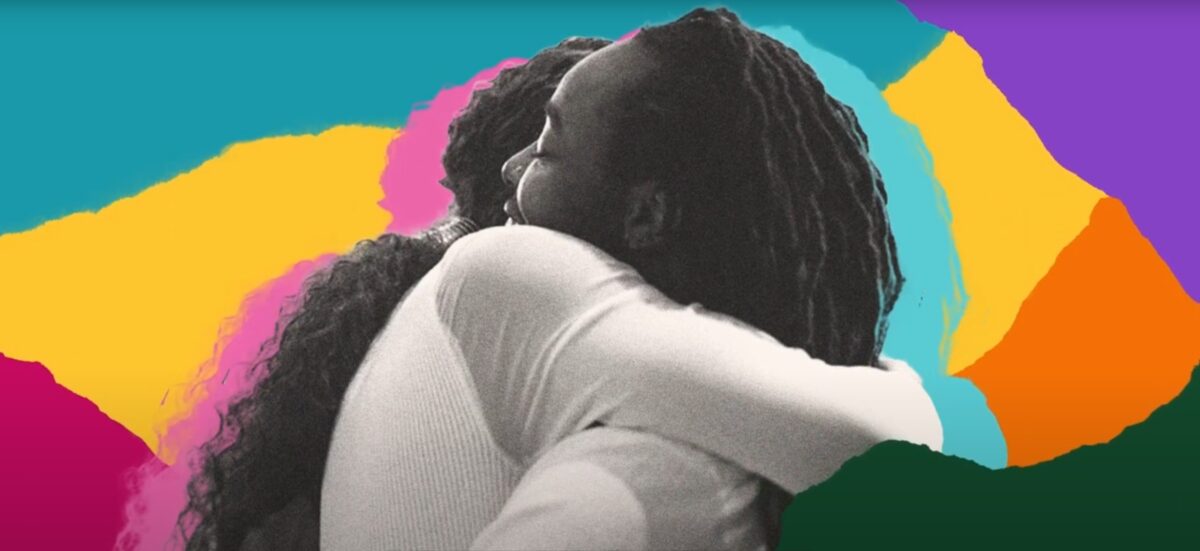We Keep Us Safe: Interrogating Hate Crime Legislation
About
It’s time we say No to hate crime laws and demand more. We deserve a future where we are thriving and fully resourced. A future that honors the legacy of the beloved community members we’ve lost and finishes what they’ve started. Where money goes not to hate crime laws and the systems that have always harmed us—but directly to our communities.
When the Hate Crimes Statistics Act was signed in 1990, the devastation of the AIDS crisis was at its peak. The law was seen as a monumental win as it recognized the recent increase in “gay bashings” throughout the country. But was it really a win?
At the time, queer and trans activists had clear demands for healthcare and other lifesaving resources that would send a clear signal that queer and trans people— specifically BIPOC communities living with HIV/AIDS—were valued and supported. But the lawmakers chose not to meet these demands. Instead, what did they do?
They passed the Hate Crimes Statistics Act, which stated that law enforcement should, but doesn’t have to, collect data on reports of violence designated as hate crimes. They did nothing to acknowledge the ongoing dehumanization of queer/trans people by lawmakers and made no meaningful effort to address the ongoing HIV/AIDS crisis.
To interrogate the impact of hate crime legislations, TLC conducted interviews with community members and consulted an advisory board of experienced organizers addressing policing, sex work, ableism, anti-Blackness, and more. The following messages and materials were created through such research.
Video: Should We Demand That Violence Be Called a Hate Crime?
Transcript
Interpersonal violence that’s discriminating and targeting certain people actually as State violence, actually as an extension of State violence. When we see increases in interpersonal violence and increases of the targeting of specific populations, it’s actually almost always in response to State propaganda. Increases in violence against Arab and Muslim people after the State’s response to September 11th and other terrorist attacks were because the State was encouraging people to profile and target and discriminate against Arab and Muslim people. Increases in homophobic and transphobic violence after the State was producing propaganda in response to the HIV epidemic and crisis. The State was issuing the propaganda first and then people on the ground were responding to what the State was telling them about gay people, about immigrant people, about Haitian people, about Muslim people, that so often what we’re calling hate crimes are not random acts of violence, but are actually individuals responding to the political climate that the State is often responsible for. So it’s wild then to think about the State intervening to protect the populations that the State itself is targeting. — Benji Hart
Key Points
Transcript
Violence is systemic and so if somebody is experiencing, it firsthand, what you want to do is support your people right? Definitely critical and crucial. I think it’s really important to pair it with a politicizing understanding of why the violence is taking place, so you can help them see how investing in policing, in criminalization, actually is about growing a system that is meant to keep poor people, Black people, gender-oppressed people positioned where they are in our political economy. Sometimes it’s helpful to do like a metaphor: if the State is kidnapping people from your community, even if you’re beefing with each other, however in close proximity to to them you are, whether it’s like somebody who is in your family or in your community, it ultimately does not benefit your people in any way to have them be kidnapped in terms of the long-term liberation project. — Woods Ervin
Resources
Acknowledgments
Thank you to advisory board members Umi Vera, Benji Hart, K Agbebiyi, Woods Ervin, and Yves Tong Nguyen.
We’d like to extend our immense gratitude to our design partners at IDEO for bringing their brilliant expertise to this project.

